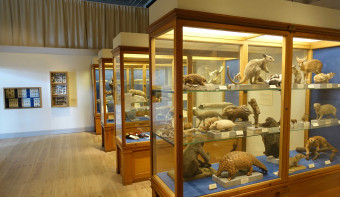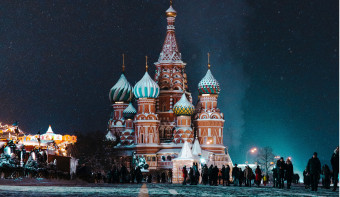About New Year's Day
When is New Year's Day?
New Year's Day is the first day of the year, in the Gregorian calendar, and falls exactly one week after the Christmas Day of the previous year. Countries who still use the Julian Calendar observe New Year's Day on January 14th. It is traditionally celebrated with firework displays across the globe at 00:00 in the local time zones.
Who is working on January 1st?
Around 90% of the world's population observe a public holiday to mark International New Year's Day. What about the other 10%? Read who doesn't celebrate New Year's Day.
History of New Year's Day
New Year's Day was originally observed on March 15th in the old Roman Calendar. When January and February were added during one of the many attempts to clean up the calendar, they were actually added to the end of the year.
The start of the year was fixed at January 1st in 153 BCE, by two Roman consuls. The month was named Janus after the name of the Roman god of doors and gates. Janus had two faces, one facing forward and one looking back, a fitting name for the month at the start of the year.
During the Middle Ages, a number of different Christian feast dates were used to mark the New Year, though calendars often continued to display the months in columns running from January to December in the Roman fashion.
In ancient Babylon, New Year's celebrations involved slapping the king in the face. If the king cried, this was considered a good omen.
For some parts of Europe, New Year's Day was determined by Easter, which meant a different New Year’s Day date every year.
It wasn't until 1582 when the Roman Catholic Church officially adopted January 1st as the New Year.
Most countries in Western Europe had officially adopted January 1st as New Year's Day even before they adopted the Gregorian calendar.
New Year's Resolutions
Many people take the opportunity of the new year to make resolutions. According to a survey by ComRes, the most common New Year's resolutions included exercise more (38%), lose weight (33%) and eat more healthily (32%).
The tradition of setting New Year's resolutions began some 4,000 years ago with the ancient Babylonians, although for them the year began not in January but in mid-March on the first moon after the spring equinox. According to historians, returning that rusty rake you'd borrowed from your neighbour was top of the Babylonian resolution list, along with the timeless promise to pay off debts.
Similar Observances
Free Comic Book Day
Read More
Other Observances on January 1st 2026
Alzheimer's Awareness Month
Read More
Feast of St Basil
Read More
Public Domain Day
Read More










